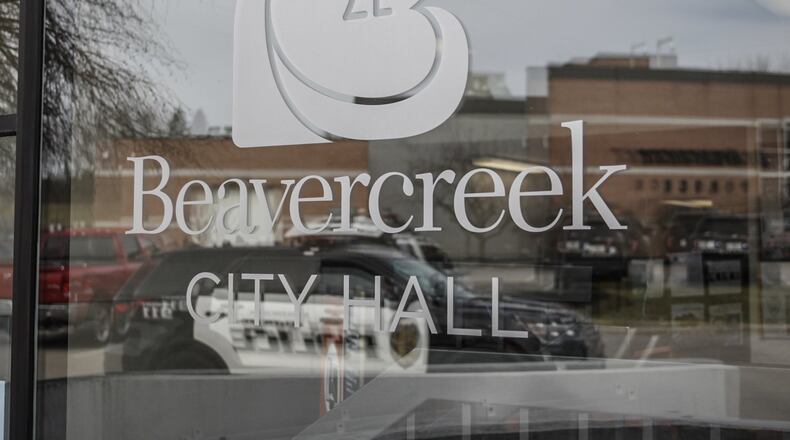In his state of the city address Monday night, City Manager Pete Landrum said Beavercreek has a dire need for additional staff in both public services and safety, but has no dedicated funding source with which to hire them. He said Beavercreek has the lowest police officer-to-resident ratio of the surrounding greater Dayton agencies, and well below the 1.42 officers per 1,000 residents recommended by the FBI.
“It is getting more difficult with the increases for calls for services. Depending on the shift, there are four to six patrolling officers on duty at one time, covering the second-largest city in landmass and third largest city by population in the area,” Landrum said. “In the first six months of 2021, more than 22,700 calls were made for police services. If this trend continues in the second half of the year, the city will experience the most calls for police services in the department’s history.”
“If funding was available, we would hire five additional police officer positions as soon as we could and reassess at that point,” he added.
While Beavercreek’s spending has increased this year, city officials say problems with funding still remain.
The city heavily relies on property tax, the growth of which is almost always outpaced by cost of living and inflation, Landrum said.
“About 90% of our property taxes are through fixed levies where property tax reappraisals do not impact the levy amount the city receives,” he said. “This is why the city of Beavercreek is always asking for additional funding for levies — not because we don’t wisely spend the funds, but because property taxes were not meant to be the primary funding source for cities, but rather more rural areas like townships.”
Extra funding could come from an earned income tax, which the city plans to place before voters in May.
“An income tax would reduce city property taxes and the sole reliance on it, by collecting revenues from non-residents,” Landrum said. “Based on the most recent census data available, approximately 88% of employees working in Beavercreek live in surrounding communities. Also, recent police reports reflect that 70%-80% of traffic stops, accidents, and arrests are from non-residents. Clearly, residents are not the only ones receiving services from the city.”
Over 51% of Beavercreek’s projected 2022 income comes from property taxes, which totals roughly $22.3 million. The second-highest revenue category is intergovernmental revenue at $5.6 million (13%), and grant money at $4.4 million (10%). That grant money includes its first tranche of $2.5 million in federal American Rescue Plan Act funds, and two Ohio Department of Transportation grants for streets.
At $19 million (41%), the the largest chunk of the city’s budget in 2022 is devoted to street infrastructure, including $5.4 million for improvements and $2.3 million for repaving. The second largest is public safety at 25%, and parks and recreation at 7%.
Beavercreek plans to hire three full-time employees, including a communications operator in public safety, a GIS technician, and an assistant superintendent for facilities. The city will also hire a part-time food service worker for the golf course.
Union employees and non-union employees will see salary increases of 2.5% and 2.25%, respectively.
In October, the city dedicated nearly all of its $5 million in federal ARPA funds towards infrastructure, with 92% allocated for roads, water, and stormwater projects, and the remaining 8% to capital expenditures.
The city budget includes just over $203,000 in parks and recreation projects to replace playgrounds at Royal Point and Shoup Park, and to improve disability access and bridge replacement at Stafford Park. Beavercreek is also making moves to create the city’s largest park, with funding to purchase 100 acres of land with the help of the Ohio Department of Natural Resources. The city plans to purchase another adjacent 48 acres through ODNR grants next year.
Beavercreek city council approved the 2022 budget on Monday.
About the Author

